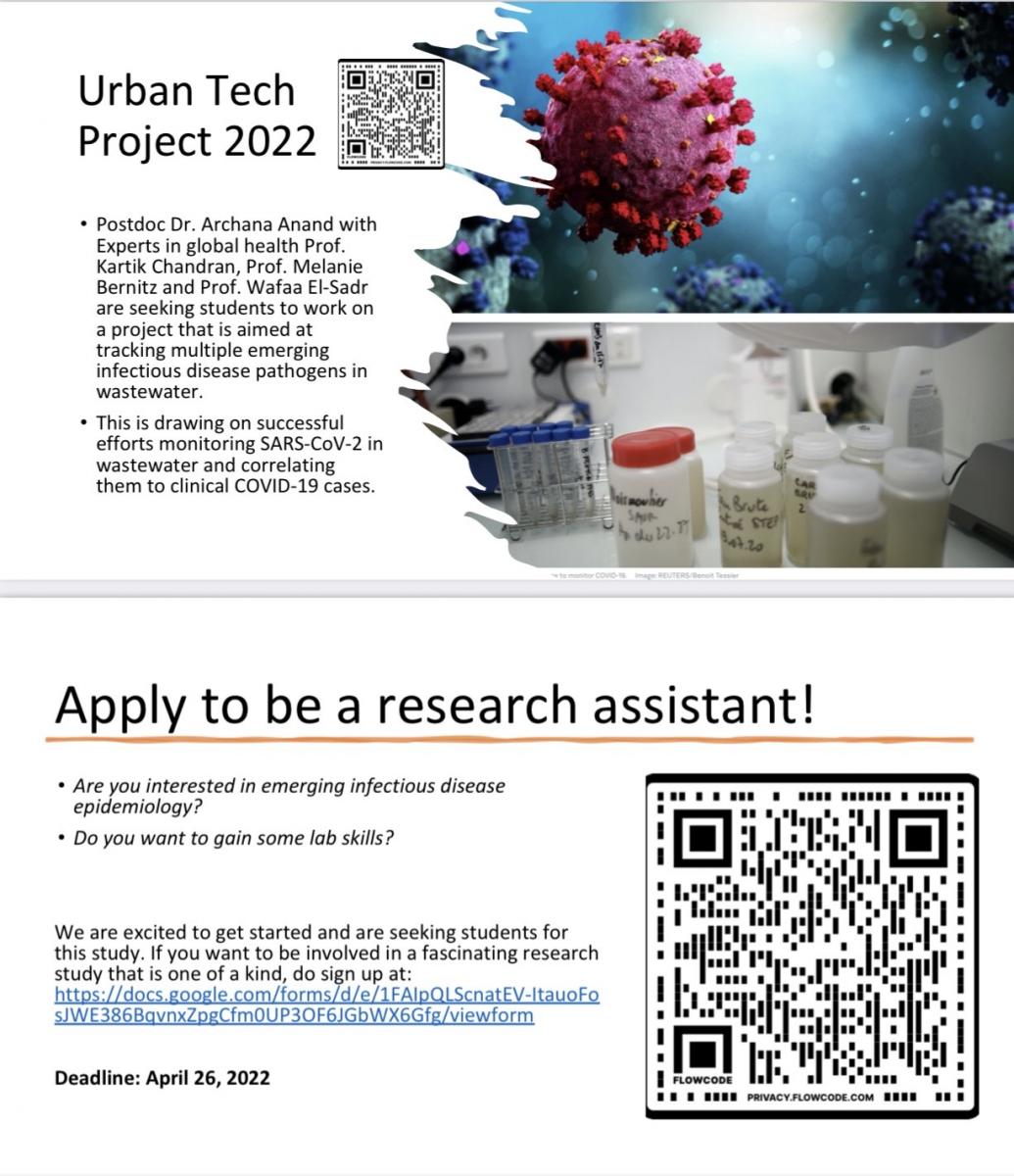Research Opportunities
Below is a listing of research projects that are being offered by professors in the Earth and Environmental Engineering department. Please refer to the respective websites for project descriptions and requirements. Academic credit may be given at the discretion of the faculty advisor.
Depending on the project and individual faculty, registration options for summer research may be: (a) Research for Credit with paid tuition: course EAEE 9305 or (b) Undergraduate Research for Credit with paid tuition: course EAEE 3900.
Ongoing
Combined Effects of Coastal Storms and Sea Level Rise on NYC’s Communities and Infrastructure: Optimal Protective Strategies
I am accepting both BS and MS students to conduct independent research for academic credit in the following topic and the only prerequisites are knowledge of Python and ArcGIS.
Both MS and BS. Contact Prof. Deodatis expressing interest (gd286@columbia.edu) https://www.civil.columbia.edu/faculty/george-deodatis
Scaling Investigation of Reverse Osmosis Membranes using Feed Waters Pretreated with Thermomorphic Hydrophilicity Base-Induced Precipitation (THBIP)
The water-energy-environment group offers opportunities for extensive research experience. You will be involved in all aspect of research: from literature review to hands-on in the lab to data analysis to research communication. Research project will investigate a novel switchable solvent technique as an energy-efficient pretreatment technique to descale feedwaters for reverse osmosis. Specifically, you will be involved in experimental characterization of performance decline in reverse osmosis using pretreated and untreated waters. Students committed to research are encouraged to apply. Passion for lab work a must. General background in membrane process, water quality engineering, and aqueous chemistry.
MS Only. Yip Lab, yiplab-h2o-e-env.eee.columbia.edu/
Summer 2022
Monitoring and protecting community health through real-time environmental surveillance and detection of multiple pathogens
Students will be engaged in a timely, relevant project in wastewater based epidemiology while designing assays to detect infectious disease pathogens other than SARS-CoV-2 in raw wastewater. The project aims to use mgLAMP and successfully develop a rapid real-time monitoring surveillance program that would lead to an environmental pathogen dashboard to monitor public health. We aim to begin testing three buildings in Columbia University and explore scalability across the campus as well as greater NYC.
Both MS and BS. Got questions? Email postdoctoral researcher Dr. Archana Anand - aa4957@columbia.edu, alternatively email project PI Prof. Kartik Chandran - kc2288@columbia.edu Environmental Microbiology Lab - https://www.eee.columbia.edu/faculty/kartik-chandran
Kartik Chandran's website - https://kchandranlab.wixsite.com/kclab

Fall 2022
Monitoring and protecting community health through real-time environmental surveillance and detection of multiple pathogens
Students will be engaged in a timely, relevant project in wastewater based epidemiology while designing assays to detect infectious disease pathogens other than SARS-CoV-2 in raw wastewater. The project aims to use mgLAMP and successfully develop a rapid real-time monitoring surveillance program that would lead to an environmental pathogen dashboard to monitor public health. We aim to begin testing three buildings in Columbia University and explore scalability across the campus as well as greater NYC.
Got questions? Email postdoctoral researcher Dr. Archana Anand - aa4957@columbia.edu, alternatively email project PI Prof. Kartik Chandran - kc2288@columbia.edu

